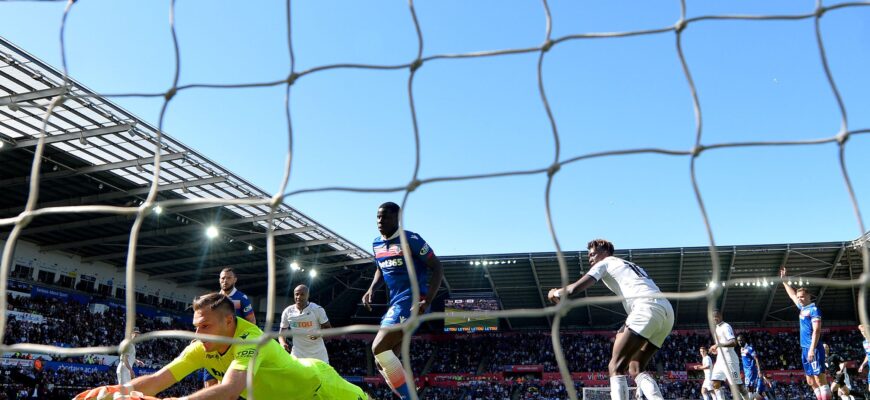The Premier League season, a relentless marathon from start to finish, often throws its first major strategic curveball around Week 3. Just as teams begin to find their rhythm, the Carabao Cup (EFL Cup) emerges from the fixture list, presenting managers with a delicate tactical calculus: chase early silverware, blood promising youngsters, or preserve key players for the all-important league grind? This midweek interlude, often dismissed as a secondary competition, casts a long, fascinating shadow over the weekend`s top-flight encounters, transforming straightforward predictions into a high-stakes game of managerial chess.
The Double-Edged Sword of Cup Action
For many clubs, especially those with aspirations beyond mere survival, the EFL Cup represents a vital opportunity. It`s a stage for fringe players to stake a claim, for injury returnees to regain match fitness, and for academies to showcase their brightest talents. Yet, this noble pursuit comes with inherent risks. A grueling cup tie can lead to fatigue, minor knocks escalating into full-blown injuries, and crucial players needing an unexpected rest just before a pivotal league clash. The narrative of an “epic crash out” or a “back-and-forth battle” against lower-league opposition often sounds romantic, but in the cold light of Saturday morning, it can simply mean tired legs and shuffled lineups.
Managers, often depicted as master strategists, become reluctant gamblers in these scenarios. Do they risk a star striker against a spirited League One side to maintain momentum, or do they rotate heavily, accepting a potential drop in performance for the sake of Premier League longevity? The answers to these questions are not always immediately apparent, but their ripple effects are certainly felt on the analytical models and, more importantly, on the pitch.
Strategic Vignettes: Week Three`s Defining Battles
This particular weekend offers compelling illustrations of this midweek conundrum, turning seemingly simple fixtures into intricate puzzles.
The Title Contenders` Clash: Arsenal vs. Liverpool
When two titans like Arsenal and Liverpool meet, every tactical decision is magnified. Liverpool, known for their high-flying attack, also showed early defensive vulnerabilities, conceding four goals in two matches, including two against a numerically disadvantaged Newcastle. Arsenal, meanwhile, boasts a robust defense. The critical variable here isn`t just raw talent, but the potential availability and freshness of key playmakers. A midweek cup fixture for either side could subtly shift the balance, forcing managers to weigh the importance of starting a slightly jaded star versus a fresher, albeit less experienced, alternative. The outcome often hinges on which team`s defense can weather the storm and whose attacking depth can truly make a difference, especially if key figures like an Ødegaard or Saka are under wraps. It`s a testament to football`s unpredictability: sometimes, the best defense isn`t a solid backline, but simply having the most rested legs.
The Mid-Table Maelstrom: Wolves vs. Everton
Contrast the high-stakes drama of the top of the table with the frantic scramble in the middle. Wolves, after a “back-and-forth” midweek cup battle, might find themselves grappling with the physical toll, while Everton, having `run circles` around a lower-league side, could potentially arrive at the weekend fixture with a renewed sense of confidence and less physical strain. Here, the cup`s influence isn`t about squad depth for title pushes, but about basic Premier League survival and momentum. Everton, despite early defensive jitters (leading the league in expected goals conceded), are generally considered a top-half contender, while Wolves flirt with relegation risks. The true test of a team`s resilience often comes in these seemingly less glamorous fixtures, where the subtle advantage gained from a less taxing midweek can translate directly into crucial league points. It`s less about tactical genius and more about sheer endurance.
The Momentum Machine: Tottenham vs. Bournemouth
Tottenham`s early season under a new managerial philosophy has been characterized by aggressive, fast starts. Scoring in the first half of both their opening matches, this trend suggests a well-drilled side eager to assert dominance. Bournemouth, having also featured in midweek cup action, albeit with heavy rotation, might still be in a phase of “gelling.” For Tottenham, maintaining this early momentum is paramount. Their improved defense, coupled with a propensity for early goals, positions them well. The question is whether the midweek exertions of their opponents will allow Spurs to dictate the pace from the whistle, securing an early advantage they can then manage. It`s a strategic race against time, where the freshness of the first 45 minutes often dictates the final score.
Beyond the Scoreline: The Analyst`s Conundrum
For the astute observer, these midweek distractions add layers of complexity far beyond simple form guides. It`s no longer just about who should win, but who is physically and mentally prepared to win after navigating the tightrope of cup football. Managers aren`t just picking a team; they`re making a calculated risk assessment, balancing short-term ambition against long-term league goals. The early weeks of the Premier League season are not just a test of skill, but a profound examination of squad management, tactical flexibility, and sheer willpower. The “EFL Cup effect” is a subtle, yet powerful, undercurrent shaping the narrative of the beautiful game, proving that sometimes, the biggest battles are fought not on the pitch, but in the manager`s office.








